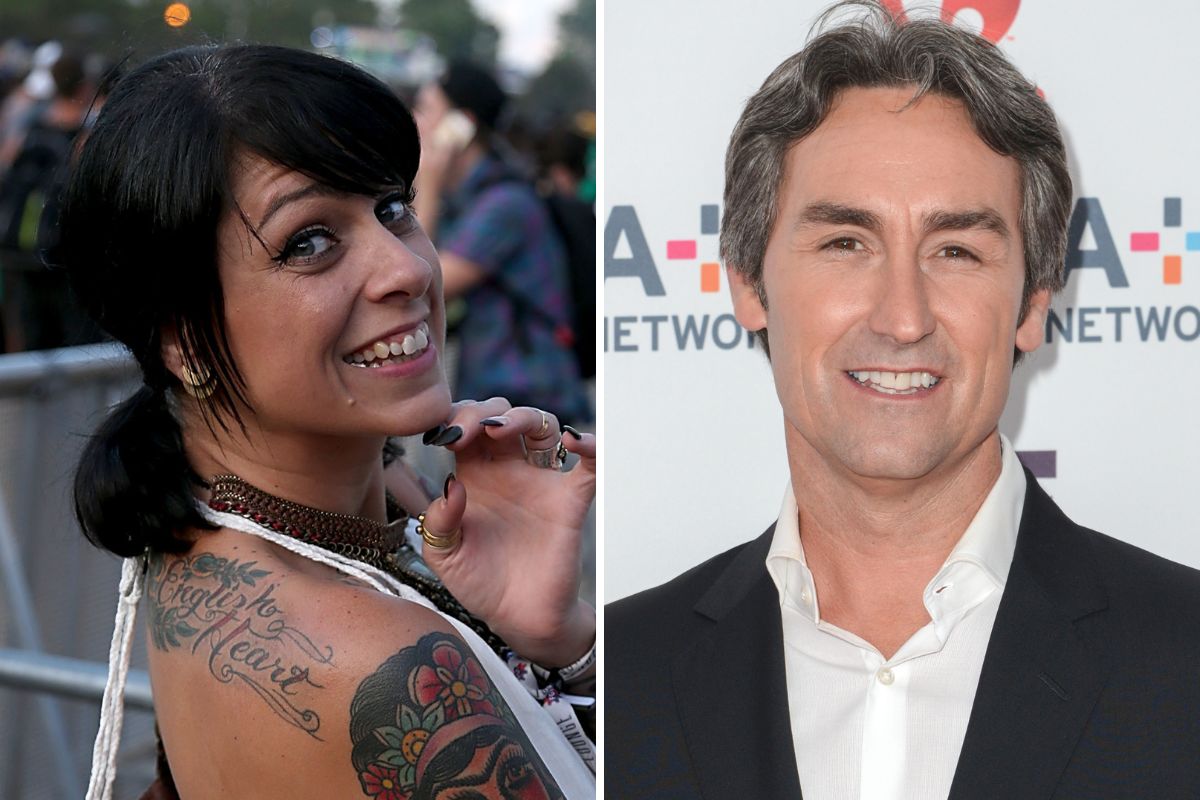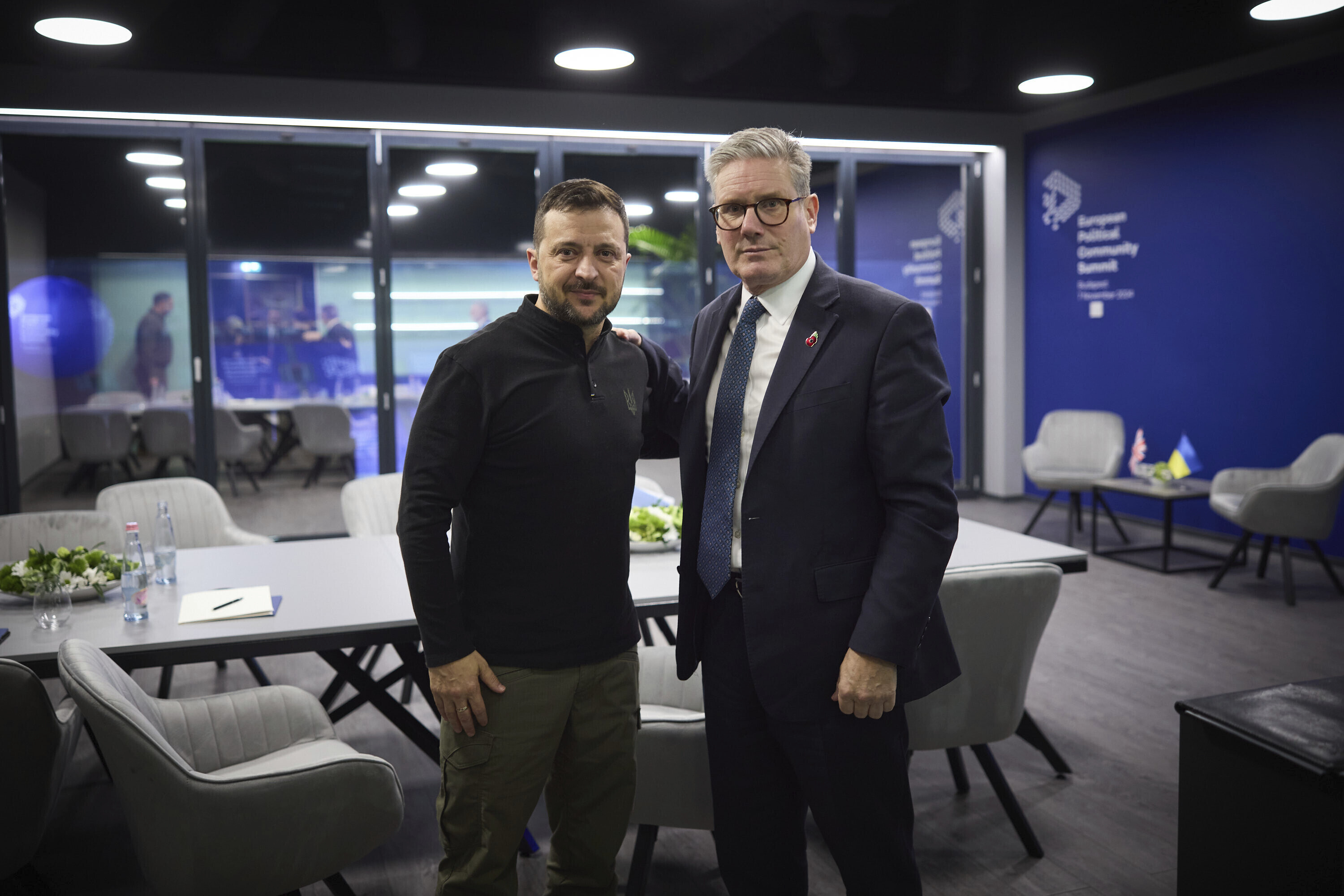EAGAN, MINN. — "I'm so anti-woke," said Tina Rexing, the owner of the eponymous T-Rex Cookie bakery based in this suburb of Minneapolis. "I'm not pandering. I'm not doing this to make myself feel better. I do it because I've been there."
Rexing, 50, is a veteran of corporate America, owner of two pure-bred French bulldogs — Midge and Winston — and a Republican. She disdains income tax and minimum wage laws, thinks diversity quotas diminish the value of hardworking people from minority backgrounds, and she proudly carries a handgun. "It's a Ruger 9-millimeter," she said reaching under her desk. "Wanna see it?"
"It's okay, I trust you," I chirped.

But Rexing is one of more than 125,000 Americans of different backgrounds and ideologies who support the resettlement of U.S. government-vetted refugees fleeing wars and persecution under several community sponsorship programs opened by the United States government in the past few years. These programs — Uniting for Ukraine and Welcome Corps, in particular — allow and encourage groups of ordinary people to sponsor the resettlement of humanitarian migrants they wouldn't otherwise know.
They are literally lifesavers.
Like professional resettlement agencies, these average Americans take responsibility for finding qualified newcomers housing and employment, registering them for social services and schools, and ensuring they have access to food, medicine, and transportation. But unlike professional agencies, they must raise the funds to support new arrivals' first 90 days through private donations and in-kind contributions of essential goods.
Last year, Rexing and her husband donated a dining table and chairs, an office furniture suite, and a variety of kitchen goods to several newly arriving Ukrainian families escaping Russia's assault.
"I'm not a sponsor," Rexing was quick to clarify. "I can't do that; I'm running a business. I just, you know, step up."
"But isn't anti-immigrant sentiment the sine qua non of the Republican Party today?" I said.
"What I'm doing is consistent with conservative values because my expectation is that we're going to help get their feet under them, but then we expect them to contribute to society," she explained. "As opposed to people hooked on meth and spending welfare checks on manicures. Are you going to take the help I give you and help others, or are you going to take the help I give you and ask for more?" She looked at Midge, who began snoring. "It's about karma, I'm sure someone stepped up to help my family when we first arrived too."
During the 2024 general election, immigration remained the fulcrum of America's culture wars — a litmus test for hardening partisanship that has paralyzed congressional action on this issue for decades. Between 2017 and 2021, President Donald Trump suspended nearly all refugee resettlement in the U.S. and is poised to do the same in his second term. But this program did not exist then, and participants are hopeful it will endure because private sponsors relieve the federal government of responsibility for newcomers' integration — which resonates with Trump's desire to cut federal services.
Indeed, participation by people like Rexing suggests the potential power of appealing to liberals and conservatives' better angels to support the resettlement of newcomers in their neighborhoods, in whatever way they feel comfortable.
Rexing was first introduced to the idea by her attorney, John Schrager, who identifies as a liberal. He and his wife, Mary Wandrei, have sponsored or contributed to 17 Ukrainian families in collaboration with Alight, a private sponsorship organization that has supported over 150 sponsor circles nationwide already. "The demographic for sponsors is empty-nesters who are caregiving by nature because they had kids of their own, and there's also a lot of retired people," he said. "Most folks are ordinary, middle-class people; they're like-minded but didn't have a reason to affiliate with each other until this meaningful project came around. Dedicated sponsors are going to skew left, sure, but people responding to a smaller ask for money or furniture are Democrats and Republicans; it's everyone."
Community sponsorship is also a call to action for people who are not necessarily politically active or partisan at all — about half of all Americans — who nevertheless feel compelled by the oppression and atrocities they read about taking place in countries like Ukraine, Venezuela, Congo, or Myanmar.
Barb Stermer, 77, retired with the onset of the pandemic in 2020. She now lives in the Nokomis Square Cooperative, a residential tower that resembles a 1970s Hyatt in Minneapolis' Minnehaha neighborhood. "During the Vietnam War, Martin Luther King's March on Washington, I sat back. I watched on TV. Even after George Floyd's murder down the street, I sat back. And now that I have time, I want to give back. Our immigration system is so broken, and none of us really know how to solve the problem. I'm no longer afraid to try."
She joined a circle organized by her neighbors, Kevin and Susan Corrado, who attracted 22 other co-sponsors from the building.
"You hear about so many horrible things going on in the world — the amount of violence and how it impacts people who just want to live their lives – and wonder what you can do," said Carol Reidel, a fellow co-sponsor. "There was a large group of people and it made it easy to contribute. I can't imagine what refugees live through, and I see value in bringing these people to live here. As a nation of immigrants, we need that new blood. They embody our values more than we do. They value freedom more because they didn't have it. They have a sense of community that I think we have lost. And you build that sense of community when you respond to people needing a helping hand. I'm struck by the hospitality I've seen. I have a friend who's Cuban; she would do anything for anybody — and previously, I wouldn't."
The Nokomis Cooperative sponsors had just learned that the family they sponsored was due to arrive within a month. You'd think they were expecting the birth of a child.
"Just 24 more days," Kevin Corrado told his team over lunch in late September. The neighbors speculated about the refugees' country of origin; several expressed concern about an autumn arrival when Minnesota's weather turned sharply cold; one wrote the family a welcoming poem.
They organized themselves into teams tasked with managing the refugees' housing, employment, and finances. Kevin's eight siblings raised extra funds by hosting a garage sale, while their local church offered storage space for the donated goods. They have collected household necessities down to a vegetable peeler, an extension cord, and refrigerator magnets.
"Refrigerator magnets?" I asked.
"They have a five-year-old, for goodness' sake!" Susan Corrado exclaimed. "He's going to draw pictures!"
Private and community sponsorship programs are not an entirely new idea. Until resettlement organizations emerged after 1945, immigrants to the United States were admitted only if they had a sponsor who promised through an affidavit to care for them. And in Australia and Canada, sponsorship programs have been an integral part of the resettlement landscape in for decades.Since 2013, more refugees have arrived in Canada via private sponsorship than with government support. In 2019, only a third of refugees resettled in Canada received government assistance upon arrival; the rest entered with private or community sponsorship.
In a recent study of sponsorship's effect on the long-term economic outcomes of refugees resettled in Canada between 1980 and 2009, McMaster University researchers found that the impact of private sponsorship was greatest in the initial years after their arrival. Controlling for refugees' demographic differences, human capital levels upon arrival, and local labor market conditions, sponsored refugees' employment rates were 20 percentage points higher than government-assisted refugees one year after arrival, and their wages were higher too. The differences were greater for women and refugees with less formal education.
In the United States, refugees with sponsors have substantially higher rates of employment and higher wages than those without sponsors six months after their arrival, though less data is available.
The benefits of local advice and social networks is intuitive to sponsors — particularly those who have been new arrivals before. Ethiopian-born Robsan Yusuf was resettled from a Kenyan refugee camp by Catholic Charities in Kansas City, Missouri in 2005. Though he loved Kansas City, he and his mother came to recognize the power of relationships in American communities. They moved to Minneapolis, where friends and members of their extended family already resided.
Eighteen years after his initial arrival in the U.S., when Yusuf registered to be a sponsor, he galvanized the network of Ethiopians that once eased his family's adjustment. His four co-sponsors are all Ethiopian refugees. The WhatsApp group he taps to request extra money and goods is comprised of fellow Ethiopian refugees too. The local business owner who offered the newcomer a job? Also an Ethiopian refugee.
"I wanted to give back to the community that gave to me," Yusuf told me. "When we were in Kansas City, the Catholic Church resettled us and gave us so much. So when Welcome Corps opened, it was the best chance to give back. These people feel as unsafe as I did in Kenya. When we matched with Mathias, we decided the same day."
Mathias Shimirimana was orphaned at 17 years old after rebel militias in South-Kivu, Congo killed his father in 1998 and his mother in 2002. After fleeing the war-torn country in 2008, he spent 15 years as a refugee in Harare, Zimbabwe, before being notified that his case was accepted by an American sponsor.
"It didn't matter that he was African," Yusuf emphasized. "Refugees understand each other. Our differences are just geographic."
Because of payroll lags, Yusuf and his co-sponsors are concerned that Mathias will not receive his first paycheck from the restaurant before their initial sponsorship funds run out.
"I worry he may not make his first month of rent," Yusuf said. "So I think I'll go back to the WhatsApp group. I know people get exhausted when you ask for money all the time, but ultimately when you tell refugees' stories, people are generous. They know what it's like to be a newcomer."
This is the sentiment that mobilized Yakov "Jacob" Gradinar, a Ukrainian American prosthetic limb specialist, to found the Protez Foundation, which helps rehabilitate Ukrainians who have suffered limb loss during the war with Russia and sponsored the arrival of several refugee families, including Oksana Shpakovych and her 10-year-old son, Artem, and Svetlana Ashykhmina and her 13-year-old son, Alex.
In Spring 2022, a Russian tank shot into Oxana's home in Kyiv. Her husband jumped on top of Artem to shield him and was instantly killed by the projectile, but saved his son's life. But as he embraced his father just when the shot was fired, Artem's left arm was severed. His older brother was also killed in the attack. In a separate incident around the same time, Russian soldiers shot Alex's left leg off during a battle in Mariupol. Upon their arrival in Minnesota, Gradinar fit both Artem and Alex with prosthetic limbs, as he has done for dozens of Ukrainian refugees. In September, Ukrainian President Volodymyr Zelenskyy honored the physician at an event during his recent visit to Washington.
The two boys and their single mothers now share a Maple Grove home with Inna Karpenko and her 9-year-old daughter, Nika. Although the women's pooled resources were enough to pay rental costs in the Minneapolis suburb, they could not afford a deposit. But when a Russian American landlord learned their story, she waived the initial payment and any credit requirements in solidarity with the Ukrainian cause.
"Our sponsors are very kind people with big hearts," Karpenko told me one morning after walking Artem and Inna to their neighborhood elementary school. "They worry, and they want to help Ukrainians start a new life in peace. ...They are my American family."
She peered over toward the magnets and photographs on her refrigerator, her eyes welling up.
"As a girl, I always thought that the U.S. might be my country," Karpenko said. "It's the people. They are friendly, they smile, they joke, it's like you already know them."
The children are adapting slowly. Inna's daughter, Nika, recently attended her first sleepover. She also won a school-wide contest for her drawing of the dragon mascot. Artem is working through severe trauma. Defiantly, he prefers to swim, dive, play tennis, and PlayStation with one hand. Alex uses crutches when the prosthetic feels painful. "He always tells me how beautiful we are," Inna said. "That we shine like the sun."
The compelling power of refugee's stories are told all the time by international NGOs and resettlement agencies as they appeal for government and philanthropic support. It is different when these stories are shared between neighbors and friends, especially when their requests for support are small, tangible, and profoundly human.
In an era of identity politics and culture wars, community sponsorship programs seem able to trigger a personal sense of responsibility for caring for others that animates people to override their partisan and social boundaries on an issue that is otherwise defined by them.
Sharon and Mark Norlander are among the few Americans to now sponsor a second family from Ukraine. The semi-retired French teachers housed Vadym and Liubov Holiuk and their three children in their modest suburban home for three months last autumn, and then sponsored Vadym's sister, nieces, and parents to join them in Minnesota a year later.
I met the Norlanders at Minneapolis St. Paul International Airport as they awaited the Holiuks' arrival on September 25th. At 3:12pm, Ivan and Valentina Holiuk emerged from the customs desk through automated doors and tenderly held their son and granddaughters. It was a deep, silent reunion, their joy muted by the gravity of the moment. The delicate violins of the airport soundtrack suddenly resonated like an orchestra over the hum of the baggage claim's conveyor belts.
Inhaling the freedom they suddenly enjoyed, the Holiuks looked up, and quickly moved to embrace the Norlanders — the family that made their arrival possible. They were each starting a new chapter. Perhaps America will too.
To learn more about how you can help, click here or send an email.
Justin Gest (@_JustinGest) is a Newsweek columnist. He is a professor and director of the Public Policy program at George Mason University's Schar School of Policy and Government. He is the author of six books on the politics of immigration and demographic change, including his newest, Majority Minority.
The views expressed in this article are the writer's own.




















 English (US) ·
English (US) ·